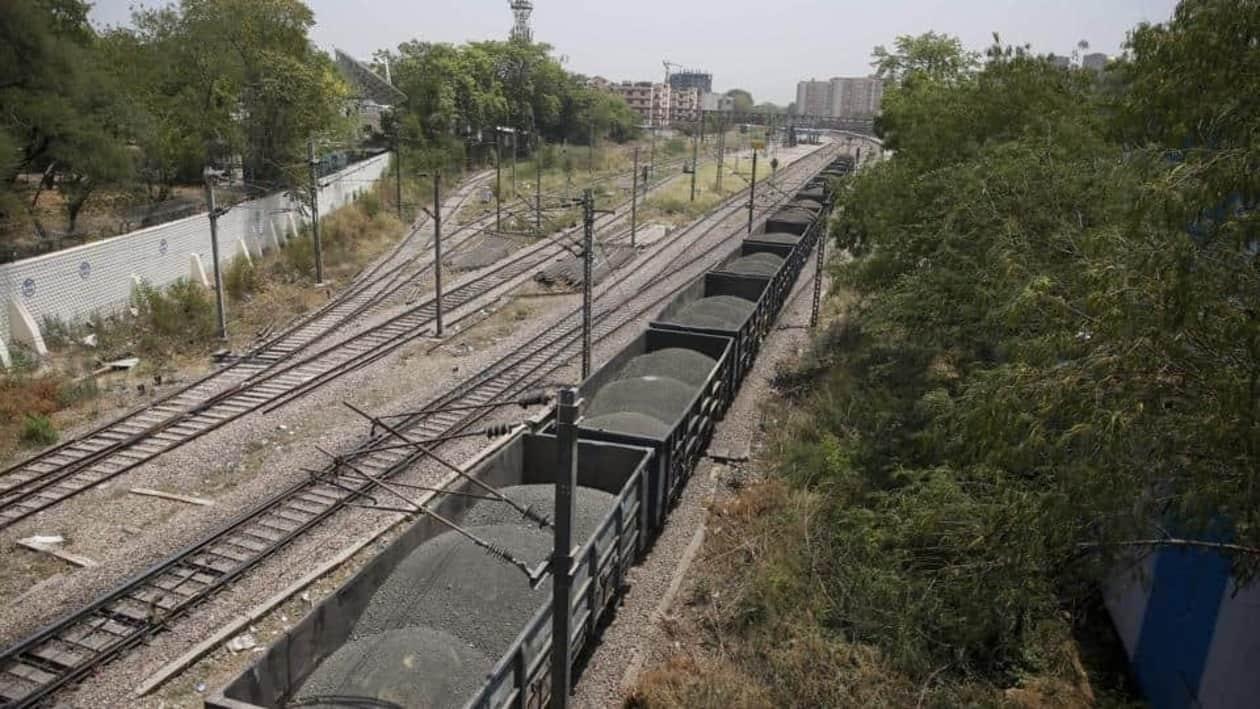Brokerage firm Emkay Global Financial Services has initiated coverage on Coal India stock with a 'sell' recommendation, terming it a "value trap".
In a report on February 14, Emkay said Coal India's cheap valuation is an "illusion".
The stock has gained substantially in the last one year; it is up about 29 percent against a 5 percent gain in the benchmark Sensex.
The stock hit a 52-week high of ₹263.30 on BSE on November 9, 2022. As of February 14, 2023 close, the stock is down nearly 20 percent from that level.
Emkay pointed out the low volume and EBITDA growth of Coal India despite its significant Capex.
"Coal India utilises a large part (last 7-year average: nearly 65 percent) of its operating cash flows as Capex, yet both volume and EBITDA growths are low. While FY16-22 volume CAGR is a meagre 4 percent, EBITDA CAGR is 6 percent, which is sub-optimal, given the extent of operating cash flows being reinvested in the business. As a result, incremental RoIC (return on invested capital) is negative," said Emkay.
The brokerage firm said just for maintaining production at the current level, Coal India needs to make continual heavy investments in land acquisition, rehabilitation, equipment and machinery.
Another negative factor for Coal India stock, as per Emkay, is the unattractive fuel supply agreements (FSA) pricing the revision of which is highly infrequent.
"Coal India sells a substantial chunk (last seven-year average: nearly 70 percent) of its volumes to the power sector at low prices, under long-term agreements (FSAs). The FSA-based coal price is reviewed quite infrequently – revised only nine times in the last 23 years, with a fairly low likelihood of another revision anytime soon, given that 2023 is a preelection year and 2024 is an election year," Emkay pointed out.
The brokerage firm added any FSA price-hike immediately results in electricity-tariff increases, as coal price is a pass-through. At the same time, the government and other authorities in India are grappling with sticky inflation, which means that FSA price hikes are a difficult decision.
Fading e-auction prices is another negative for Coal India which may put pressure on the company's EBITDA CAGR.
Emkay highlighted that Coal India sells nearly 8-15 percent of its volumes each year in e-auctions at auction-determined prices, which are more correlated to international coal prices of similar grade.
The brokerage firm pointed out that the e-auction pricing has been elevated in FY23 so far, due to the global energy crisis as a result of the Russia-Ukraine situation and other sectoral factors. International energy coal prices have continued declining from the high levels witnessed in 2022 which will also pull down Coal India’s e-auction realisations, with a lag of two-three quarters.
"We forecast Coal India's FY23-25 EBITDA CAGR at -12 percent, despite our volume CAGR estimate of 6 percent," said Emkay.
Emkay also underscored that Coal India being cash-rich is a myth.
The brokerage firm said Coal India had nearly ₹44,500 crore in cash on its balance sheet as of September 30, 2022, which translates into nearly 30 percent of the current market cap; this gives the impression that Coal India is cash-rich.
However, such cash-richness is a myth, as there are also large long-term provisions (nearly 1.5 times the cash balance) on the balance sheet, the brokerage firm said.
The stock appears to be cheap on some valuation matrices but those matrices may not portray the true picture of the stock of a company which requires to make heavy investments every year, it added.
“Coal India's cheap valuation is an illusion, in our view, as these conventional valuation metrics are not applicable to a company that needs to invest sizeable amounts of operating cash flow every year just for maintaining its level of production. We, thus, believe that Coal India is a value trap,” Emkay said.
"As Coal India pays out all free cash-flow post capex in the form of dividends, we pragmatically value the company using the classic dividend-discount model (DDM). Our DDM-based target price is ₹198 per share," added Emkay.
Coal India reported a consolidated net profit of ₹7,755.55 crore for the third quarter of the current financial year (Q3FY23), up 70 percent from ₹4,558.39 crore in the corresponding quarter of last year.
Consolidated revenue from operations increased to ₹35,169 crore, compared with ₹28,433 crore in the same period last year.
Disclaimer: The views and recommendations given in this article are those of the broking firm. These do not represent the views of MintGenie.
